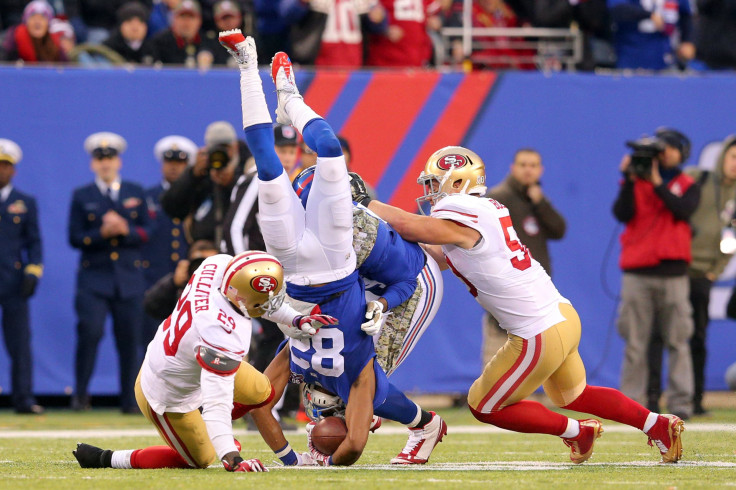National Football League Drug Inspections: Drug Agents Inspect Teams' Medical Bags For Illegal Substances

Drug Enforcement Administration agents descended on National Football League teams after Sunday's games to determine whether medical personnel were giving out drugs illegally in a bid to keep injured players on the field, the Washington Post reported. DEA agents, in conjunction with the Transportation Security Administration, inspected the bags of trainers traveling with teams to determine if they were violating the Controlled Substances Act, a senior law enforcement official told the Post.
Federal law prohibits trainers from dispensing controlled substances.
“The San Francisco 49ers organization was asked to participate in a random inspection with representatives from the DEA Sunday night at MetLife Stadium,” team spokesman Bob Lange said in an email to the Post after the 49ers' 16-10 win over the New York Giants. “The 49ers medical staff complied and the team departed the stadium as scheduled.”
The Post said the Seattle Seahawks also were inspected but the Tampa Bay Buccaneers were not. There was no immediate word on why some teams were subjected to scrutiny and others were not.
NFL spokesman Brian McCarthy issued a statement saying no irregularities were found. DEA spokesman Rusty Payne told the Post the investigation was sparked by a class-action suit filed in federal court by 1,300 retired NFL players, alleging NFL medical staff ply players with narcotics to enable them to play through injuries on game days.
Payne said Sunday's inspections were administrative to determine whether substances were being transported illegally across state lines.
A Washington Post investigation last year documented painkiller abuse in the NFL and a survey of more than 500 retired players indicated 25 percent felt they had been pressured by team doctors to take medication.
© Copyright IBTimes 2024. All rights reserved.












